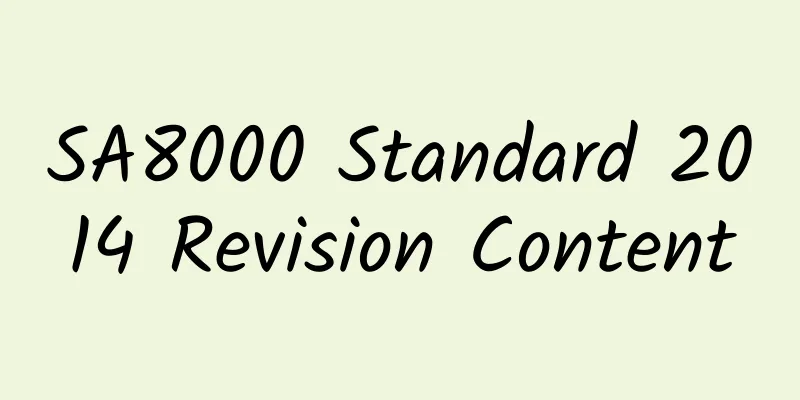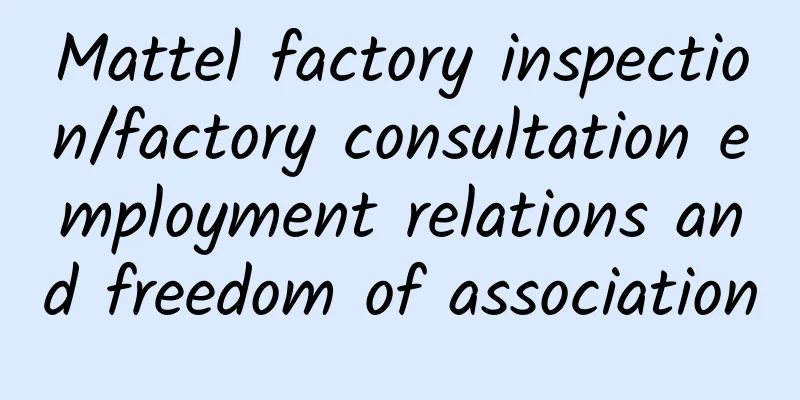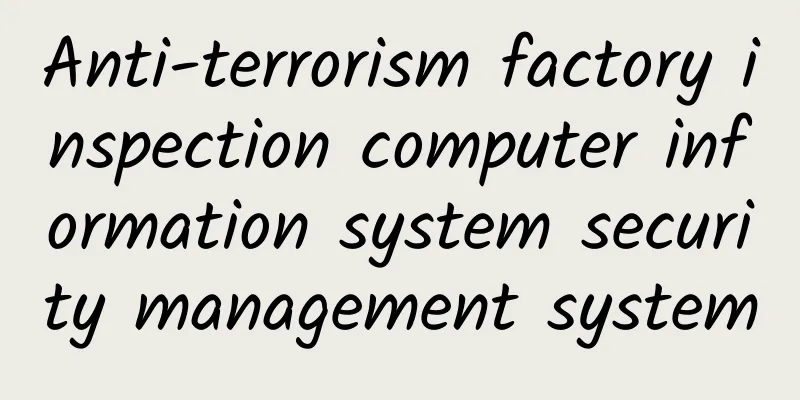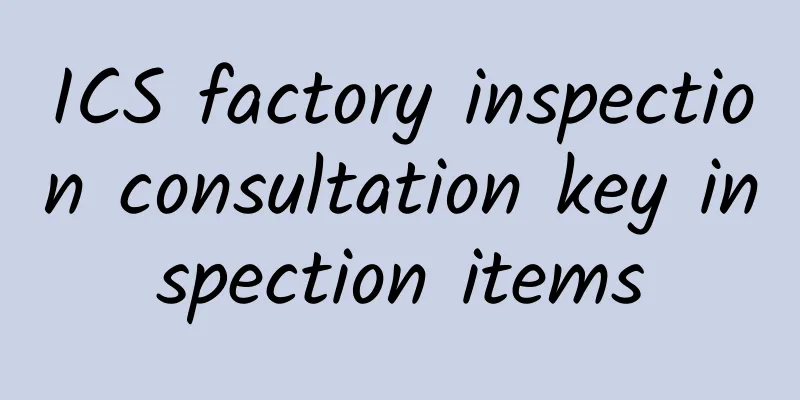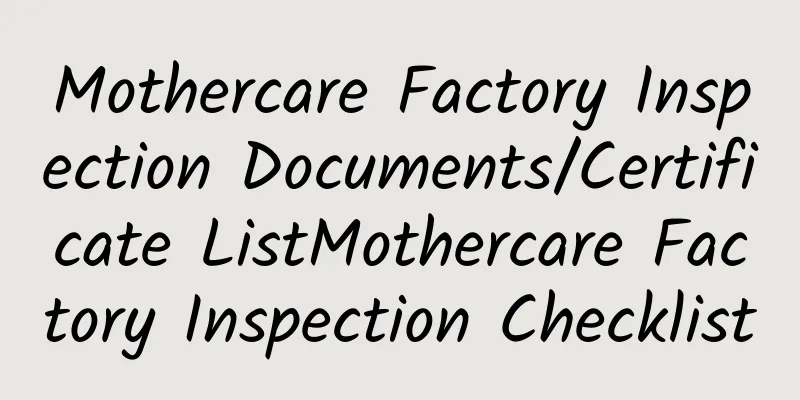ICTI Factory Audit Factory Status Terms and Definitions

|
From the moment a factory applies for ICTI factory inspection, it will be in different statuses on the ICTI official website. So, what are the specific statuses? What do these states mean? Let's take a look at them together: In Audit Progress - The factory is undergoing any necessary audit procedures and is not yet eligible to receive a certificate of compliance. Inactive - the factory is in its first ICP audit cycle and has not yet been issued an ICP compliance certificate. It still cannot meet the ICP after 3 audits. standards. Terminated - the validity of the compliance badge held by the factory has been terminated, or the new applicant factory has seriously violated the ICTI Code of Business Conduct. (COBP) and ICP processes and procedures, you must wait at least 6 months after the termination date before you can reapply. It may also refer to arrears of payment and/or Termination status due to failure to complete the ICP review within the specified time. Expired——The validity of the compliance badge held by the factory has expired. This status may also be due to the factory not having any compliance certification before or after the expiration of the certificate. Annual registration application. Class A——A-level certificate, the highest level of compliance badge, is issued to those who have been audited, have no serious violations, and have been transparently and publicly implemented. The working hours per week do not exceed 66 hours.
Factories where the weekly working hours do not exceed 60 hours. Class A Since [which year]——equivalent to Class A certificate, indicating that the factory has been working no more than 66 hours per week for the third year or more. Class B——B-level certificate, the second level of regular badges, is issued to those who have been audited, have no serious violations, and have transparently disclosed their actual Factories with weekly working hours of more than 66 but less than 72 hours Class C - Class C certificate, the third level of conventional badges, means that the factory has been audited, has no serious violations, and has transparently disclosed actual Factories with weekly working hours exceeding 72 hours are implementing continuous improvement plans to reduce working hours in order to obtain higher certification levels. On Probation - Observation period certificate, that is, the factory is under ICP supervision (3 audits within 1 year), ensuring that the factory is in the observation period Comply with ICP's Code of Business Conduct and commit to continuous improvement. Factories are usually found to have serious violations and opacity during audits. Was placed under observation. What do these states mean? Let's take a look at them together: In Audit Progress - The factory is undergoing any necessary audit procedures and is not yet eligible to receive a certificate of compliance. Inactive - the factory is in its first ICP audit cycle and has not yet been issued an ICP compliance certificate. It still cannot meet the ICP after 3 audits. standards. Terminated - the validity of the compliance badge held by the factory has been terminated, or the new applicant factory has seriously violated the ICTI Code of Business Conduct. (COBP) and ICP processes and procedures, you must wait at least 6 months after the termination date before you can reapply. It may also refer to arrears of payment and/or Termination status due to failure to complete the ICP review within the specified time. Expired——The validity of the compliance badge held by the factory has expired. This status may also be due to the factory not having any compliance certification before or after the expiration of the certificate. Annual registration application. Class A——A-level certificate, the highest level of compliance badge, is issued to those who have been audited, have no serious violations, and have been transparently and publicly implemented. The working hours per week do not exceed 66 hours.
Factories where the weekly working hours do not exceed 60 hours. Class A Since [which year]——equivalent to Class A certificate, indicating that the factory has been working no more than 66 hours per week for the third year or more. Class B——B-level certificate, the second level of regular badges, is issued to those who have been audited, have no serious violations, and have transparently disclosed their actual Factories with weekly working hours of more than 66 but less than 72 hours Class C - Class C certificate, the third level of conventional badges, means that the factory has been audited, has no serious violations, and has transparently disclosed actual Factories with weekly working hours exceeding 72 hours are implementing continuous improvement plans to reduce working hours in order to obtain higher certification levels. On Probation - Observation period certificate, that is, the factory is under ICP supervision (3 audits within 1 year), ensuring that the factory is in the observation period Comply with ICP's Code of Business Conduct and commit to continuous improvement. Factories are usually found to have serious violations and opacity during audits. Was placed under observation. |
<<: ALDI factory inspection requirements——BSCI
>>: Detailed version of holiday and anniversary leave policy
Recommend
Common electrical safety issues and solutions during BSCI factory audits (VI) Exposed wires 2
Problem phenomenon: Wires are exposed. Solution: ...
What are the entry requirements for eBay sellers?
A reader asked me what are the entry requirements...
How about Dianchuang Intellectual Property? What are the advantages of Dianchuang Intellectual Property?
How about Dianchuang Intellectual Property? Shenz...
List of documents/certificates required for Sedex-ETI audit
List of documents/certificates required for Sedex...
Warning signs required for BSCI factory audit-power hazard sign
Warning signs required for BSCI factory audit: po...
How is Zhongji Logistics? What services does Zhongji Logistics provide?
How about Zhongji Logistics? Shenzhen Zhongji Log...
Why is Mercari's C2C model successful?
What is Mercari? Mercari is a well-known C2C seco...
BSCI certification customer form filling
The other day, a customer came to consult and sai...
What are the requirements for eyewash stations in Disney factory inspection?
At present, customers' requirements for eyewa...
What is luggage and mail customs clearance? What are the precautions for luggage and mail customs clearance?
What is luggage customs clearance? Luggage and ma...
LeadPages: A marketing platform based on lead pages
LeadPages: A marketing platform based on lead pag...
Mattel Factory Inspection Consulting Emergency Plan
Are fire extinguishers sufficient and easily acce...
Useful Information | What are some good operational ideas for eBay?
For sellers who have just started selling on eBay...
How to create a hot-selling product on eBay? What are the ideas?
In the early spring of 2020, many eBay sellers we...
Requirements that ACC processing plants must meet
To establish an ACC system, you must comply with ...

